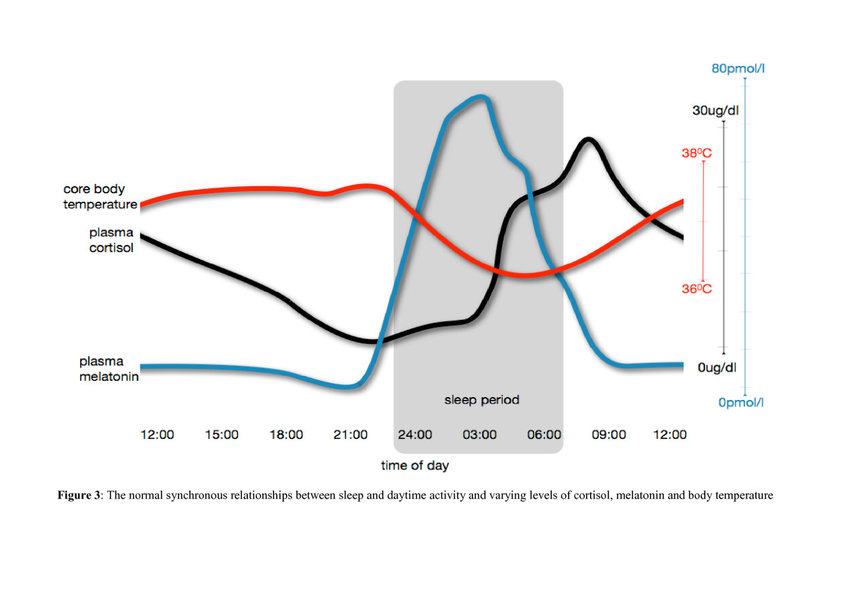
Stress and sleep deprivation are becoming typical problems in today’s fast-paced environment. A vicious cycle results from poor stress management, which causes sleep deprivation, leading restless nights. However, using effective tension-reduction strategies may greatly enhance the quality of sleep, improving general health and wellbeing. This essay examines the significant relationship between anxiety and sleep, practical stress-reduction strategies, and the life-changing effects of getting enough sleep.
Sleep and tension have a complicated relationship. Your body releases the hormone cortisol while you’re under stress, which keeps you awake and prepared to take action. Although this reaction is helpful in an emergency, long-term stress causes cortisol to be released for a longer period of time, which alters sleep cycles and shortens the deep sleep phases.
However, getting enough sleep improves cognitive performance, controls distress hormones, and fosters emotional stability. People who get less than six hours of sleep each night are more likely to suffer from mood disorders and elevated stress levels, says a National Sleep Foundation research.

1. Higher cortisol Levels
Prolonged trauma increases the creation of cortisol, which makes it harder to fall and remain asleep. The sleep hormone melatonin is also produced less when cortisol levels are high.
2. Racing Tension and Thoughts
Overthinking is a common sign of nervousness that keeps people from relaxing. Your sleep may be disturbed by anxiety that keeps your thoughts active at night over relationships, job, or life events.
3. Tension in the body
Truma makes it difficult to unwind and enter deep sleep phases because it causes headaches, tense muscles, and elevated heart rate.
4. Trouble Sleeping
Sleep apnoea, insomnia, and restless legs syndrome are all associated with chronic stress, which can result in long-term health problems.

1) Maintaining Hormonal Balance
In addition to supporting the synthesis of dopamine and serotonin, neurotransmitters that elevate mood and lessen anxiety, a restful night’s sleep also helps control cortisol.
2. Improved Psychological Capabilities
Consolidation of memories, decision-making, and problem-solving all depend on sleep. People who get enough sleep are better at handling stress and retaining their emotional fortitude.
3. Stronger Immunity
Getting enough sleep boosts immunity, which lowers the risk of tension-related diseases including the flu, colds, and inflammation.
4. Stronger Mastery of Emotions
Emotions are heightened by sleep deprivation, making even small pressures seem overwhelming. Sleep that is restorative promotes mental clarity and emotional stability.

Practicing mindfulness meditation before bedtime reduces distress, calms the nervous system, and promotes relaxation. Studies by Harvard Medical School suggest that mindfulness meditation improves sleep quality and reduces insomnia symptoms.
Techniques such as the 4-7-8 breathing method help lower heart rate and induce relaxation, making it easier to fall asleep.
Exercise reduces cortisol levels and releases endorphins, which combat anxiety and improve sleep. Activities like yoga, walking, and strength training promote relaxation and restfulness.
Caffeine and alcohol disrupt sleep patterns. Reducing consumption in the evening enhances melatonin production and improves sleep cycles.
Going to bed and waking up at the same time daily helps regulate your body’s internal clock, making it easier to fall asleep naturally.
Exposure to blue light from screens inhibits melatonin production. Turning off electronic devices at least an hour before bed improves sleep quality.
Writing down worries and positive affirmations before bed reduces mental clutter, promoting peace of mind and deeper sleep.
Essential oils like lavender and chamomile have calming properties that aid relaxation and sleep induction.

1. Foods Rich in Magnesium
Magnesium aids in nervous system relaxation and muscular relaxation. Bananas, spinach, and almonds are among the foods that promote sound sleep.
2. Herbal Teas that Help You Unwind
Teas made with chamomile, valerian root, and passionflower encourage calmness and enhance the quality of sleep.
3. Healthy meals to Maintain Blood Sugar
Energy dumps brought on by skipping meals or eating high-sugar items right before bed might interfere with sleep and stress levels. Stable energy and mood are supported by eating meals that are well-balanced and contain fibre, protein, and healthy fats.
As technology develops, people may better regulate their anxiety and sleep thanks to new innovations:
![]()
Gaining control over anxiety is essential to getting good sleep, which will boost your energy and general wellbeing. Stress-induced sleep disorders can be broken by combining mindfulness, relaxation methods, and good lifestyle choices. Make stress reduction and sleep a priority if you want to reach your greatest potential and have a happier, healthier life. Find more resources on stress management and sleep, on StudyCreek.
Delivering a high-quality product at a reasonable price is not enough anymore.
That’s why we have developed 5 beneficial guarantees that will make your experience with our service enjoyable, easy, and safe.
You have to be 100% sure of the quality of your product to give a money-back guarantee. This describes us perfectly. Make sure that this guarantee is totally transparent.
Read moreEach paper is composed from scratch, according to your instructions. It is then checked by our plagiarism-detection software. There is no gap where plagiarism could squeeze in.
Read moreThanks to our free revisions, there is no way for you to be unsatisfied. We will work on your paper until you are completely happy with the result.
Read moreYour email is safe, as we store it according to international data protection rules. Your bank details are secure, as we use only reliable payment systems.
Read moreBy sending us your money, you buy the service we provide. Check out our terms and conditions if you prefer business talks to be laid out in official language.
Read more